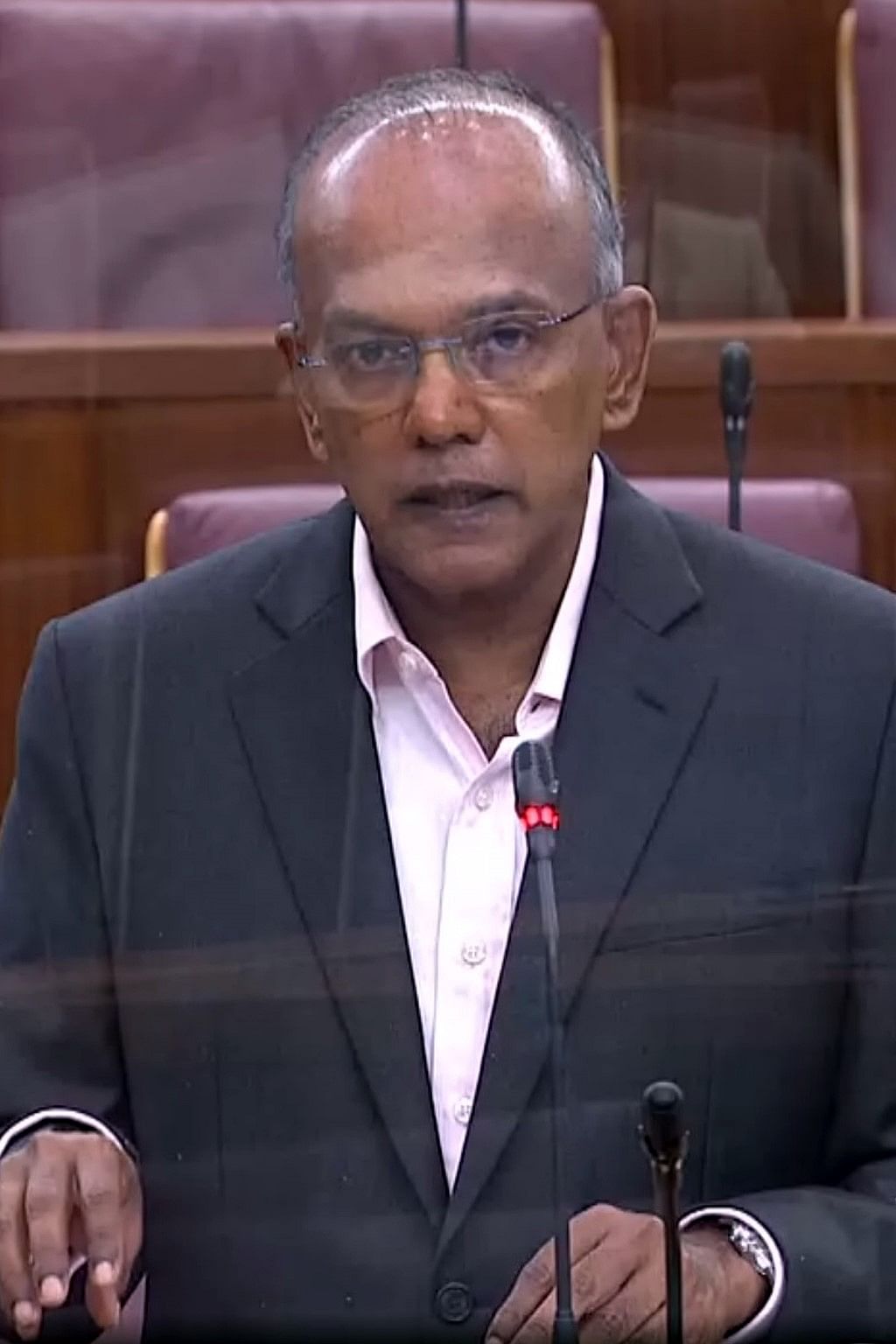Parliament
Law passed to help pandemic-hit SMEs cope with rent obligations
Measures not a crutch - only fit and viable businesses will survive: Shanmugam
Sign up now: Get ST's newsletters delivered to your inbox
Parliament passed a law yesterday to help pandemic-hit small and medium-sized enterprises (SMEs) cope with issues of rent, among other things, as the economic situation and outlook worsen.
This comes as SME tenants are struggling because many cannot operate until phase two of the reopening of the economy.
Also, while some landlords have given aid, several others have not.
Meanwhile, there are concerns that accumulated rental arrears should be handled fairly - an issue being addressed in the new legislation, which is based on the premise of fair sharing of rental obligations among landlords, tenants and the Government, said Law Minister K. Shanmugam.
Earlier, in presenting the Covid-19 (Temporary Measures) (Amendment) Bill for debate, he outlined the principles for the new rental relief framework.
"What is a fair sharing of the remainder of the burden between landlords and tenants?
"The related question is: Will the market be able to find an equilibrium that reflects the principle of fairness?" he said.
The answer to these two related questions rests on a number of points.
"First, all Singaporeans, including landlords, have a shared interest in seeing SMEs do well.
"Second, in a climate like this, expecting market forces to push towards a fair equilibrium is not realistic," said Mr Shanmugam, who is also Home Affairs Minister.
"Third, what is the alternative if we do not intervene?

"If many of our SMEs, for whom a stable cash flow is fundamental, are unable to survive, the domino effect on the rest of the economy will be very substantial, and a lot of jobs will be at stake," he noted.
"For landlords, the asset value is affected by broader economic conditions.
"If viable SMEs go under because of temporary cash flow difficulties, the economy as a whole suffers and the value of property will also suffer," he pointed out.
Under the proposed legislation, eligible SMEs are those that have suffered a 35 per cent or more year-on-year drop in average monthly revenue in April and last month.
Eligible tenants and sub-tenants in the food and beverage and commercial sectors will get a total of four months of rent waived from April through July - two months each from the Government and the landlord.
Those in the office and industrial sectors will get two months of rent waived from April through May - one month each from the Government and the landlord.
This is as long as their leases are in force on April 1.
"It was a significant effort to conceptualise, crystallise, get the feedback from different stakeholders, take in the feedback and then draft the legislation - all in about three weeks," Mr Shanmugam said.
Replying to Ms Jessica Tan (East Coast GRC) on whether the measures "unnecessarily prolong the exit of unviable businesses", he said that was "front and centre in (his) consideration on whether to intervene".
He added: "We need to help, but (the measures) cannot be a crutch... "We are throwing them a lifeline of a few months' rental waiver, but... business conditions are going to be rough.
"So it will be only the fit and viable businesses that will survive this period even with the relief we are giving."
Mr Murali Pillai (Bukit Batok) wanted to know how sub-tenants are being helped.
Mr Shanmugam replied: "The Bill does not require cash to move from the Government to the property owner to the actual tenant or sub-tenant.
"What it does is put in place a framework of rental waivers mandated by law."
Given this mechanism, the concern raised on behalf of sub-tenants not getting the two months of rental waiver does not arise.
He said: "By law, we are saying the rental is not payable.
"So that's a very different proposition. And automatically the sub-tenant doesn't have to pay his immediate intermediate landlord, and the intermediate landlord does not have to pay the ultimate landlord."
He added: "Everyone will get two months on this waiver mechanism. And we will set that out very clearly in subsidiary legislation."


